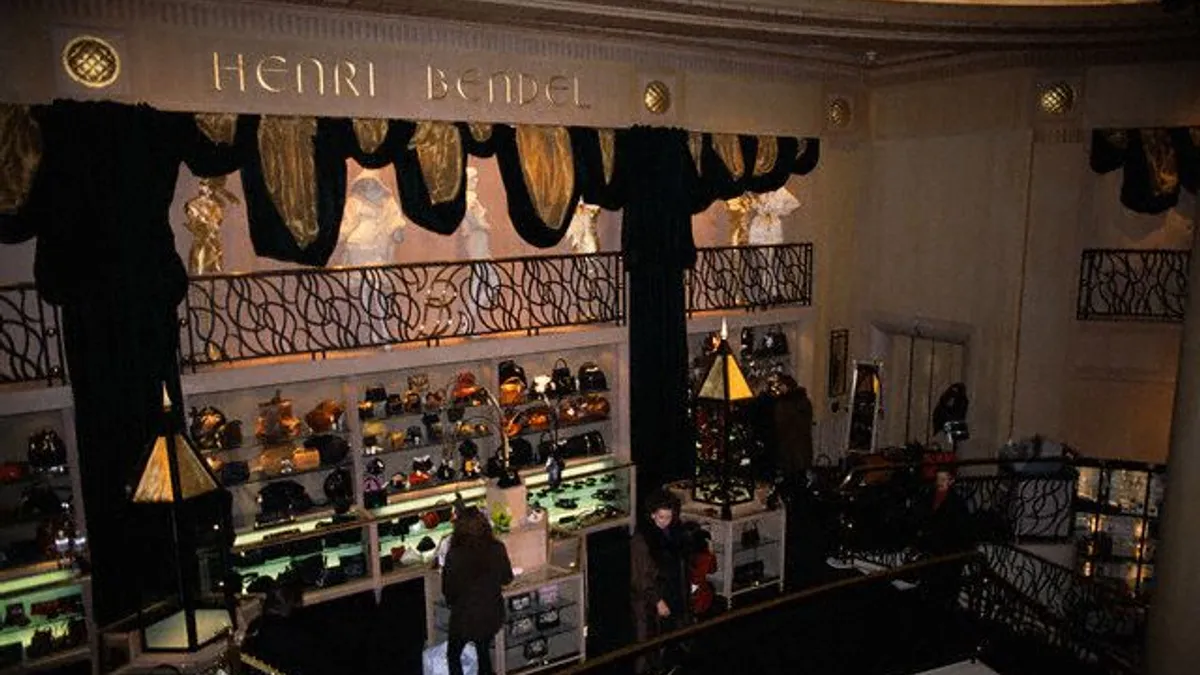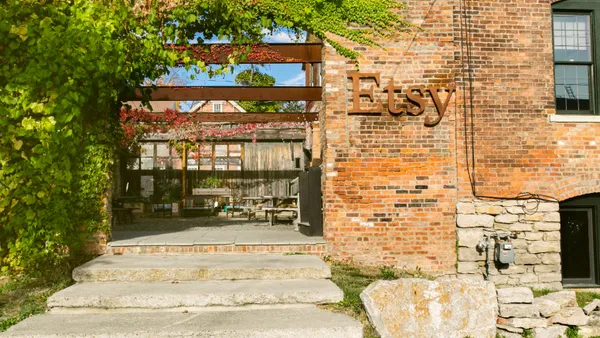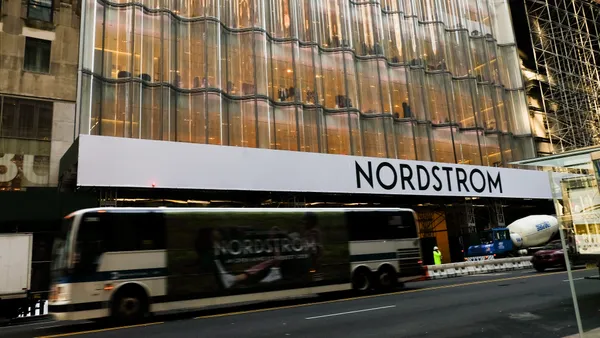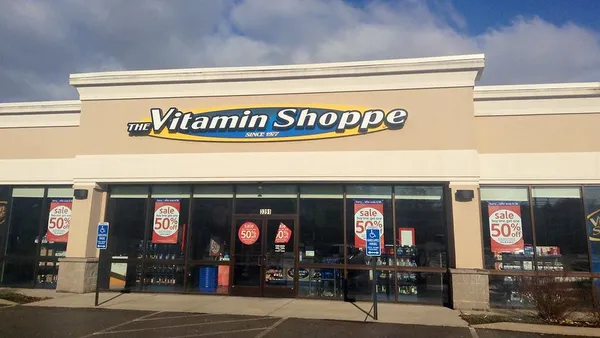Henri Bendel, who was born in Lafayette, Louisiana, in 1868, was "known for infallible taste," and "was the first luxury retailer with an upper Fifth Avenue address, the first to hold a semi-annual sale, the first to offer in-store makeovers, and the first to stage a fashion show," according to the retailer's website. He founded his first store as a millinery in New York in 1895.
The art deco lettering in the brand's logo is a reflection of its heyday — the store brought Coco Chanel to the U.S. along with other Paris couture of the time. Bendel was also a designer of apparel, accessories and fragrances in his own right.
But the brand named for Bendel has reached the end of the line as owner L Brands' moves to wind it down. The apparel conglomerate, which acquired the iconic brand in 1985, said last week that all Henri Bendel stores and its e-commerce site will shutter in January, including the Fifth Avenue flagship and smaller-format stores in 11 states, though they will have new merchandise for the holidays.
"Another legacy retail franchise that, once resurrected by [L Brands CEO Les] Wexner should have continued to be viable, but now finally has failed," Mark A. Cohen, director of retail studies at Columbia University Graduate School of Business, told Retail Dive in an email.
A neglected brand or an inevitable demise?
The brand's position in the portfolio of Wexner's L Brands has been a head-scratcher for many observers from the get-go. "Henri Bendel was always an odd acquisition by Les Wexner," according to Cohen, who said the motivation may have been somewhat personal for Wexner, often known as a genius-level retail merchandiser, possibly "driven by sentimentality, vanity, ego or a discernible intent to expand this old line legacy banner."
Branding strategist Brian Kelly, president of consultancy Brian Brands, compared it to the acquisition of "other old tired retail brands that buy an identity with the same or similar hopes, like Hudson's Bay buying Lord & Taylor, or Macy's buying Story." Indeed, hopes were high at the time that Wexner would revive the storied brand. "I remember when Les bought it and hoped the secret sauce would migrate onto the other brands in the portfolio," Kelly told Retail Dive in an email. "But that never happened."
The business languished after L Brands' acquisition, with "no there there," in Kelly's estimation. "It hasn't been a New York icon in a decade," he said.
Prospects seemed bright once retail veteran Chris Fiore took over as president in 2011. "Chris stabilized the company and gave it badly needed product direction and a newly minted brand equity," Cohen said. "But then when Chris left [in 2016] he was succeeded by a succession of far less capable leaders. The business went nowhere." (Fiore is back in the position as Henri Bendel president, according to his LinkedIn page.)
Kelly compares the closure to the decline of a decidedly less upscale retailer. "In a weird way, Wexner's shedding of brands is akin to Lampert's shedding of Sears/Kmart stores," he said.
And Cohen noted that the company simply couldn't afford to hang on to the ill-performing brand. "I guess with underneath motives ... performance was never seemingly an imperative while all other L Brands businesses were doing well," Cohen said. "Now, with fires burning throughout his L Brands empire, Wexner in deciding to close Henri Bendel appears to be doing triage on his business."
Wexner himself said as much, emphasizing the shareholder value in the move in a statement last week. "[W]e have decided to stop operating Bendel to improve company profitability and focus on our larger brands that have greater growth potential," he said Thursday. "This decision is right for the future growth of our company, but not easy because of the impact to our L Brands family."
But how much of a chance did the historic fashion retailer have in the 21st century?
"The shift in consumer behavior from boomer to millennial must be understood to tell the story of failed retail," Kelly said. "Spending $1,000 on a phone was never anything a boomer in pre-family formation stage would ever do. Life has changed."














